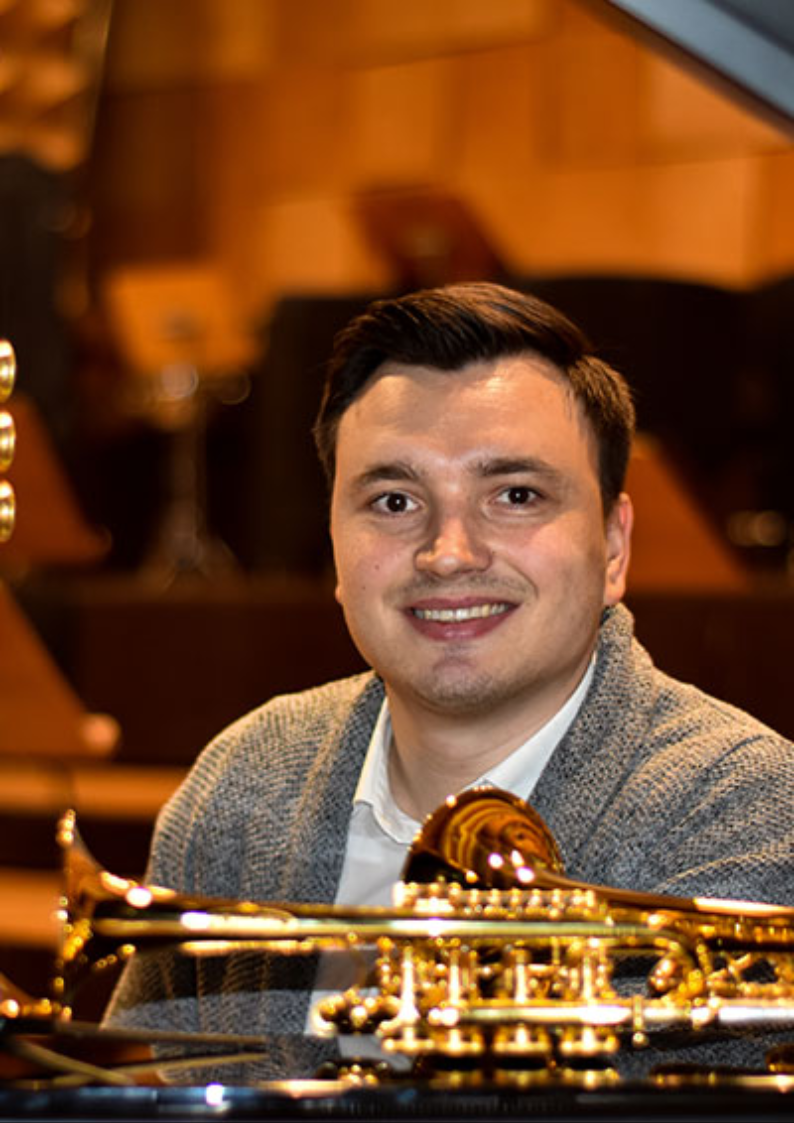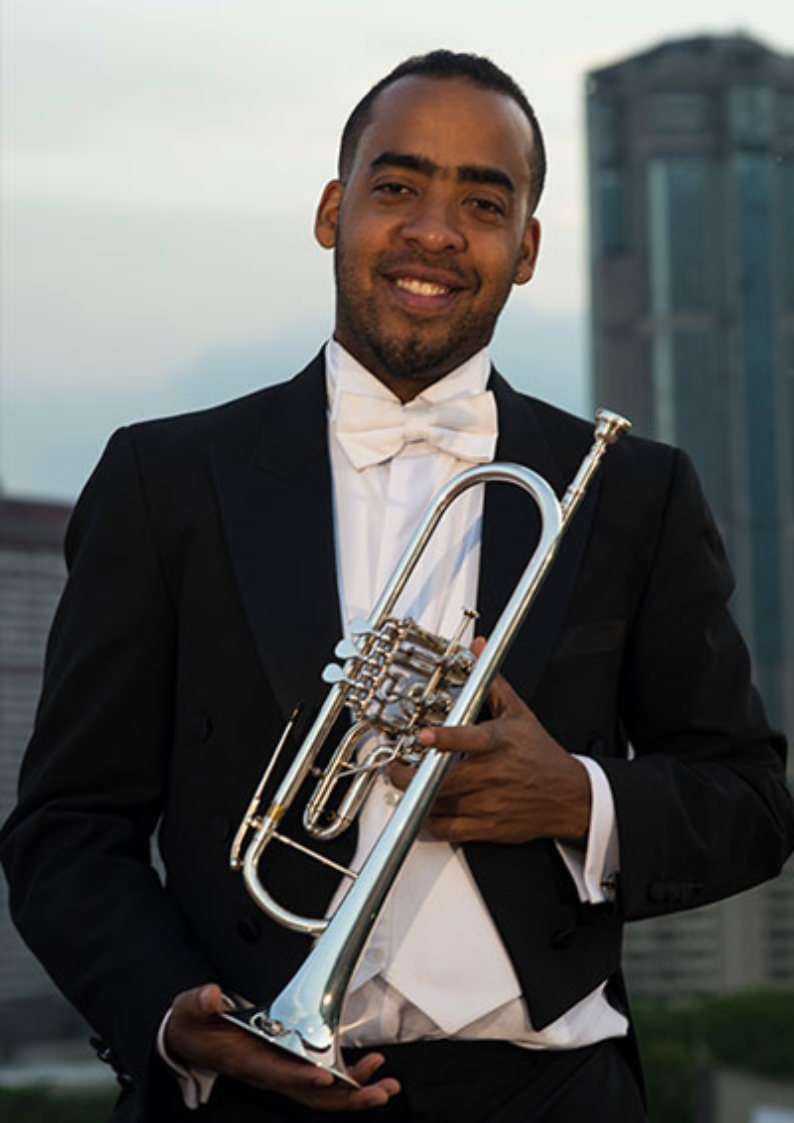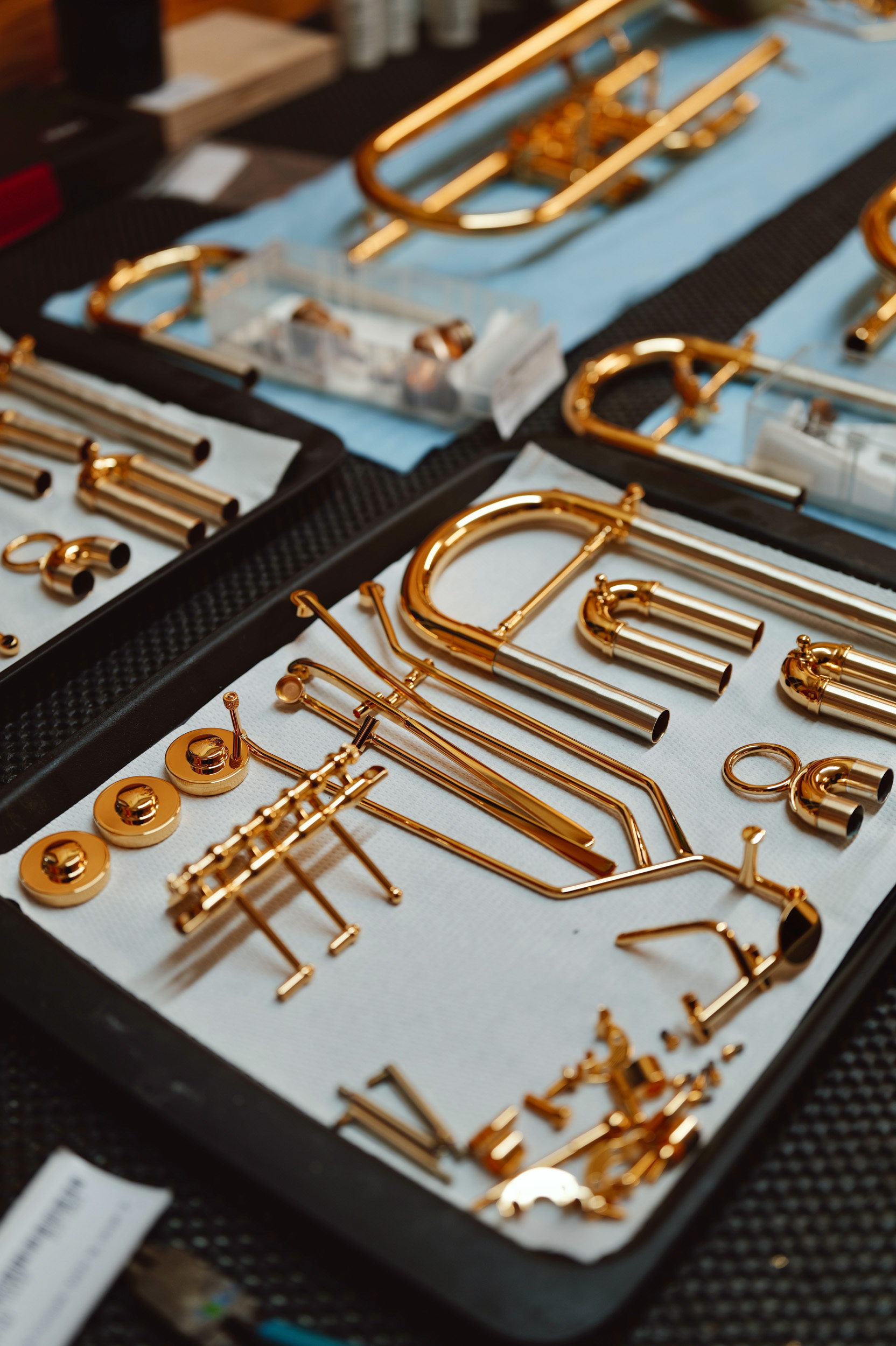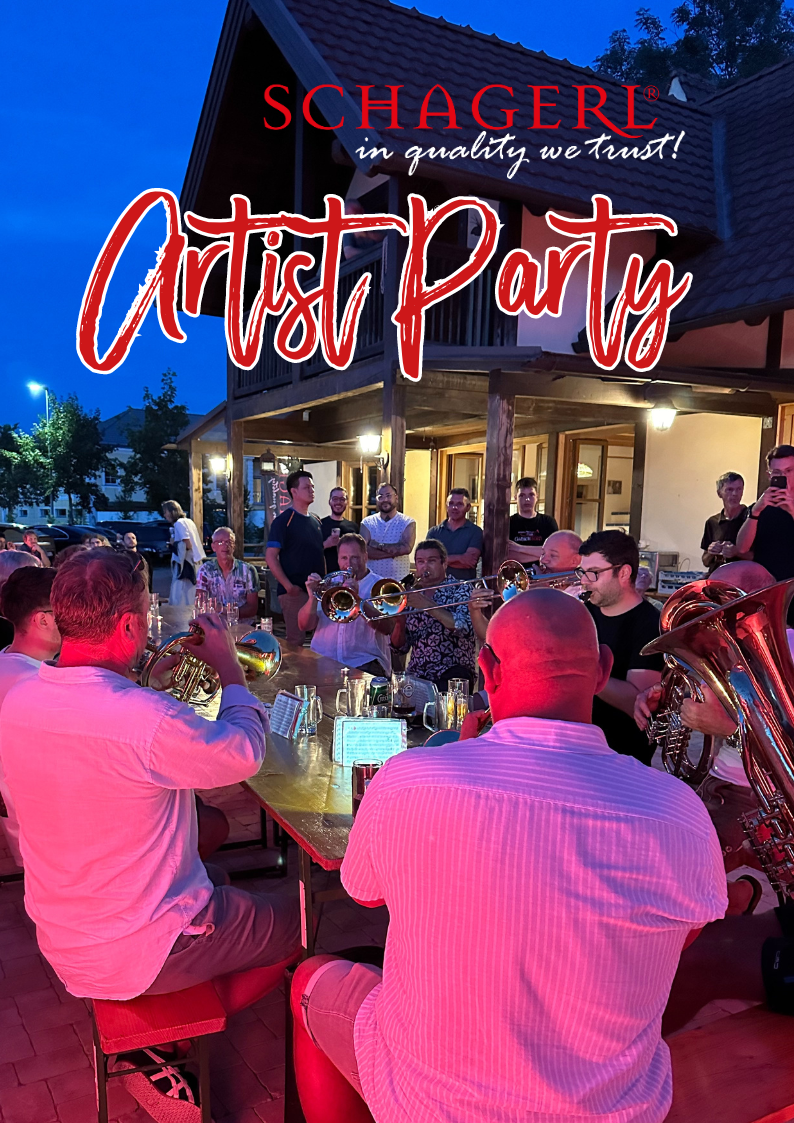Andrei Kavalinski - Schagerl Artist
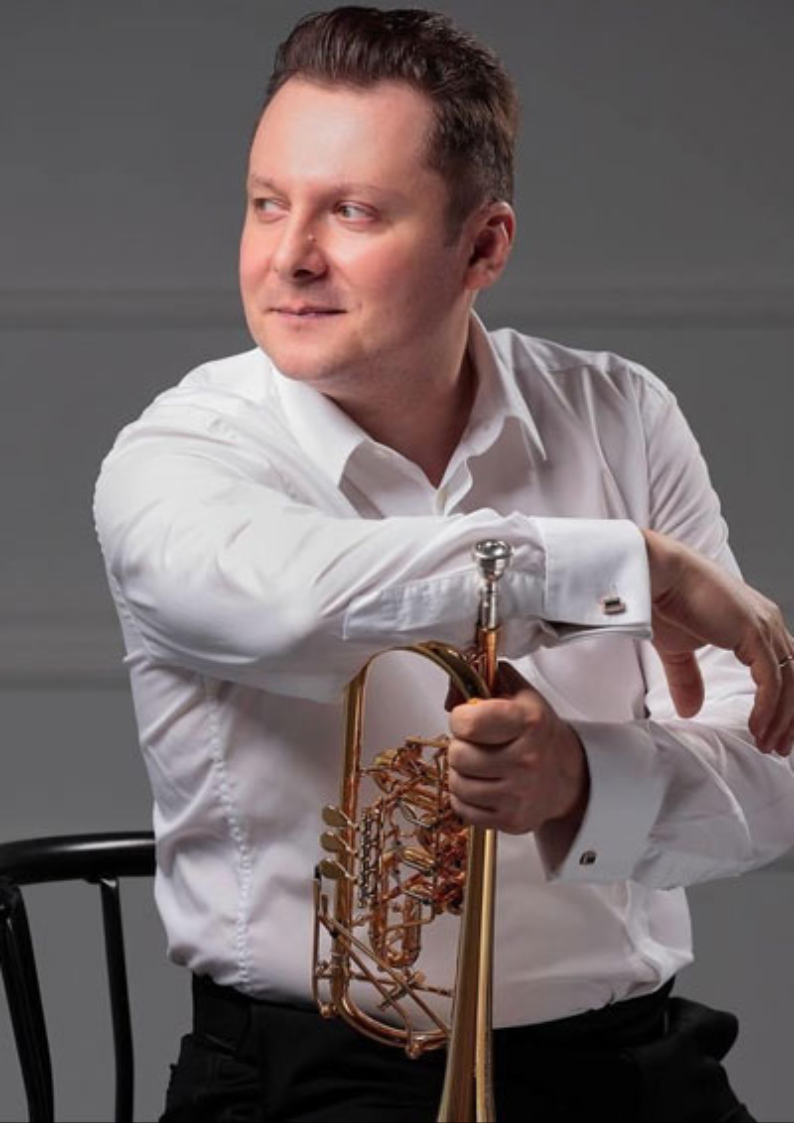
How did you come to Schagerl?
We all know about the eternal question ‘Which instrument should you choose?’. From the very first moment I picked up the Schagerl trumpet, I never had this question again. The journey to Mank was an intensive search for freedom in playing and an expansion of the colourful sound palette. My attention was caught by the performance of the artists who represented Schagerl - Hans Gansch, Gábor Tarkövi, James Morrison... I was surprised by the openness and the unique colours of the sound. A new horizon opened up for me in the trumpet performance - SCHAGERL MEISTERINSTRUMENTE - which was unknown to me at the time. And then everything happened like in a novel. I have answered this question briefly, as our interview does not cover all the unique and unforgettable moments I experienced when choosing my new instrumentarium.
Which instruments are in use?
At the moment I play:
Schagerl Bb trumpet model ‘Berlin’ heavy
Schagerl C trumpet model ‘Berlin’ heavy
Schagerl Bb trumpet model ‘Las Vegas’
Schagerl C trumpet model ‘Charis’
Schagerl Eb trumpet model ‘Phoibe’
Schagerl Bb/A piccolo trumpet model ‘Berlin’
Schagerl Bb flugelhorn model ‘Vienna’
Schagerl C trumpet model ‘Berlin’ heavy
Schagerl Bb trumpet model ‘Las Vegas’
Schagerl C trumpet model ‘Charis’
Schagerl Eb trumpet model ‘Phoibe’
Schagerl Bb/A piccolo trumpet model ‘Berlin’
Schagerl Bb flugelhorn model ‘Vienna’
Who has influenced you in your career?
In my opinion, I had the best teachers I could have wished for and I'm not just talking about trumpeters, but also such brilliant musicians whose recordings gave rise to my own view of the world around us. The great Heinrich Neuhaus with his piano school of performing arts, David Oistrakh with his unrivalled technical skills, Enrico Caruso and the German School of Vocal Performance as well as conductors who open up the richest world of orchestral music to us and of course my amazing professors Nikolai Volkov and Reinhold Friedrich.
What was your career like?
I started studying the trumpet when I was 10 in my hometown of Minsk with Professor Nikolai Volkov. It was a stroke of luck for me - he was a fantastic teacher who taught me the basics and technique and introduced me to the German-Russian trumpet tradition. 8 months after starting my studies I played my first recital for the public and the following year I played the Hummel concerto with the Philharmonic State Orchestra live on television. A few months later followed my first recordings with the Staats Rundfunk Symphonie Orchester: concertos by Haydn and Gorelova (the latter was dedicated to me) and a lot of chamber music with piano, including works by Brandt, Honegger, Sarasate and Arban. A year later I began to work intensively on the piccolo trumpet together with the Philharmonic State Chamber Orchestra. We played concertos by Telemann, Leopold Mozart, Fasch, Händel, Torelli, Vivaldi, Michael Haydn, Tartini, Molter, Hertel, Albinoni and others.
When I was 16, I became a solo trumpet player in the State Opera Symphony Orchestra, the largest and most important orchestra in the country, which also played a lot of large symphonic repertoire.
I wanted to develop further and I was determined to learn the traditional German-Austrian and French trumpet schools. I went to Germany in 1998 and immediately after my arrival I started as a solo and alternate trumpet player at the Dortmund State Theatre.
A few months later I started studying with Prof Reinhold Friedrich in Karlsruhe. It was another milestone in my life. Reinhold was phenomenal in every respect. We went through the entire solo and orchestral repertoire together. It was another world that suddenly opened up to me. He introduced me to the concertos of Zimmermann, Davies and Skalkottas. Reinhold showed me how to interpret baroque and classical literature stylistically, consciously following in the footsteps of pioneers such as Harnoncourt, Leonhardt and Pinnock.
I was constantly on the lookout for a suitable instrument and mouthpiece for the corresponding repertoire. It was clear to me that I needed stability when switching from one instrument to another. There was hardly a better opportunity than to test myself and my equipment in a competition where you are constantly changing instruments. So during my studies I decided to take part in major international trumpet competitions and won competitions such as Maurice André (Paris), Toulon, ITG-Ellsworth-Smith, Moscow, Porcia, Tromp Muziek Biennale (Eindhoven) as well as the Richard Wagner Prize (Bayreuth), the Timofei Dokshizer Prize (Moscow), the Karlheinz Stockhausen Prize (Germany) and others.
At the age of 22, I was appointed solo trumpeter in the Belgian Radio Symphony Orchestra. In 2014 I became super soloist in the Orchester National de France (Paris).
I think it is very important to support and continue the tradition by exploring new sounds and techniques. I like to work with contemporary composers. In this context, I have already written works for trumpet with the symphony orchestra, solo trumpet and trumpet with mixed ensemble.
I frequently perform as a soloist and chamber musician and give masterclasses worldwide.
How important is working with students for you?
I think it's very important. You have to support the younger generation. Today's students are the professionals of tomorrow. As a student, you can benefit from the wonderful opportunities that are offered on various platforms such as masterclasses, competitions, playing in an ensemble and listening to other instruments besides the trumpet, especially singing. In addition, a regular exchange often brings new, positive ideas. It is also important to take an interest in other art forms besides music, such as books, museum and theatre visits, visual arts and much more - back in music you are stronger in performance by having more ideas to tell the story. And of course it's very important to eat healthily, exercise regularly, get out into nature and enjoy life with family and friends. That's a good balance.
What advice can you give the new generation of trumpet players?
I grew up in the tradition of taking a picturesque view of the complex world around us. To find beauty in every moment of life, both pleasant and difficult, because they are meant to make us stronger and better. You have a question: ‘How can they be useful?‘. Life is given to us to study and develop as a person and difficult moments are a kind of test that we pass on to the universe. Do not see it as a punishment, but as an opportunity to rise to a new step in your development, and then new colours will enter your life and the silver threads of your desires will play music that will begin to be fulfilled.

